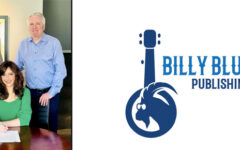![]() Last year a raging battle ensued over the performance royalty rates for internet radio. That battle continues even now. The entity that established those rates is the Copyright Royalty Board (CRB).
Last year a raging battle ensued over the performance royalty rates for internet radio. That battle continues even now. The entity that established those rates is the Copyright Royalty Board (CRB).
The CRB is now preparing to adjust and establish mechanical royalties that would be paid to publishers and songwriters for the sale of both physical products (CDs) and downloads (both full tracks and ringtones).
ASCAP has sent out a letter to it’s members raising awareness that we are about to witness another fight over royalties. This times the team members will be a little different it seems. According to the ASCAP letter, the RIAA and the DiMA will be joining together to petition the board for lower rates. These two entities have been bitter enemies in the past.
Our friends at The National Music Publishers’ Association (NMPA) will be representing the mechanical right interests of songwriters and music publishers in this hearing. They will be fighting vigorously to protect those mechanical right interests to ensure that musical compositions are compensated fairly. On the other side of this fight stands the Recording Industry Association of America (RIAA) and the Digital Media Association (DiMA). Both the RIAA and DiMA have proposed significant reductions in mechanical royalty rates that would be disastrous for songwriters and music publishers.
The letter continues to give details about the proposed rates for the various types of sales. The RIAA is proposing a rate of 6 cents per track for physical sales, that’s a reduction from the current rate of 9.1 cents. Digital downloads are where things get really bitter though. The RIAA is suggesting a rate of 5 to 5.5 cents per track while the NMPA wants the rate set at 15 cents “because the costs involved are much less than for physical products.”
Streaming services is another battle. The NMPA wants to collect 12.5% of revenue, 27.5% of content costs, or a “micro-penny calculation based on usage,” whichever is greater. The RIAA, on the other hand, is suggesting .58% of revenue, and the DiMA says zero for streaming services.
Clearly the songwriters do need to be compensated for the use of their creative works. Without quality songs, where would the music industry be? They deserve to be paid in the same way that you or I expect to be paid for work we perform for an employer.
It seems that each organization wants their slice of the pie to be the biggest. The problem is that the pie (income from the sale of music) appears to shrinking. Maybe someone should devote some time to discovering a new way to make money in the music business. Otherwise, everyone will be fighting over a cookie instead of a pie.







